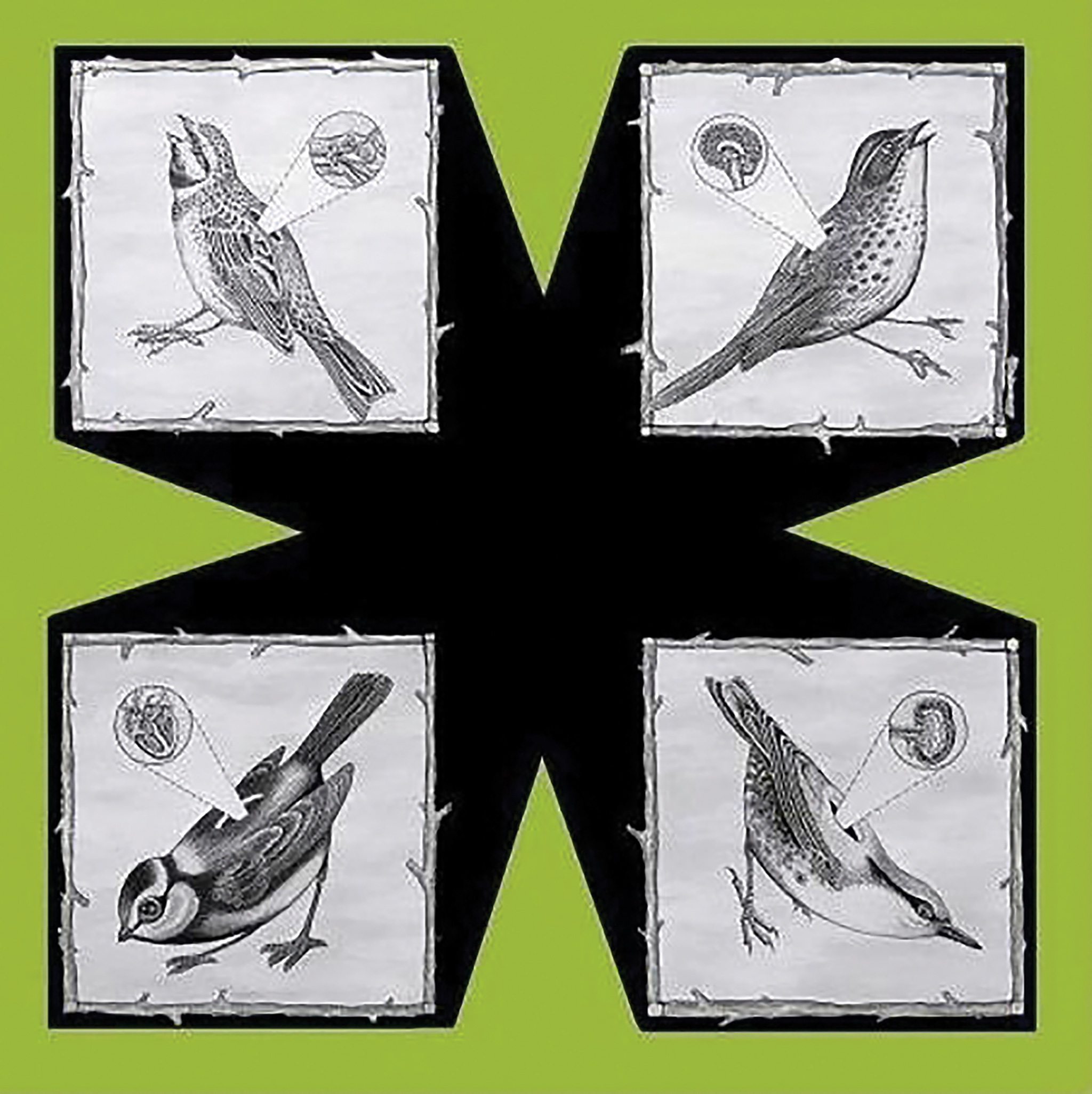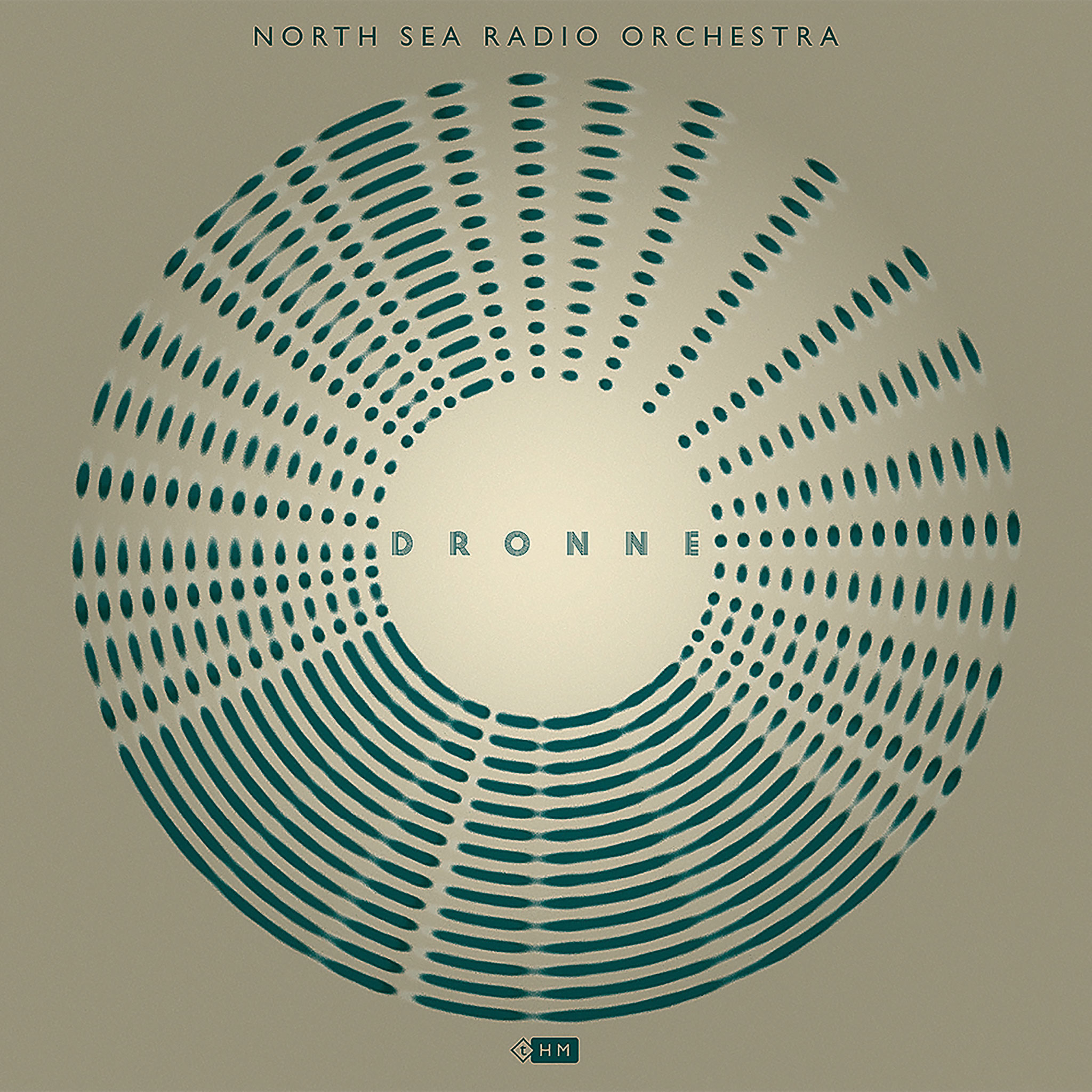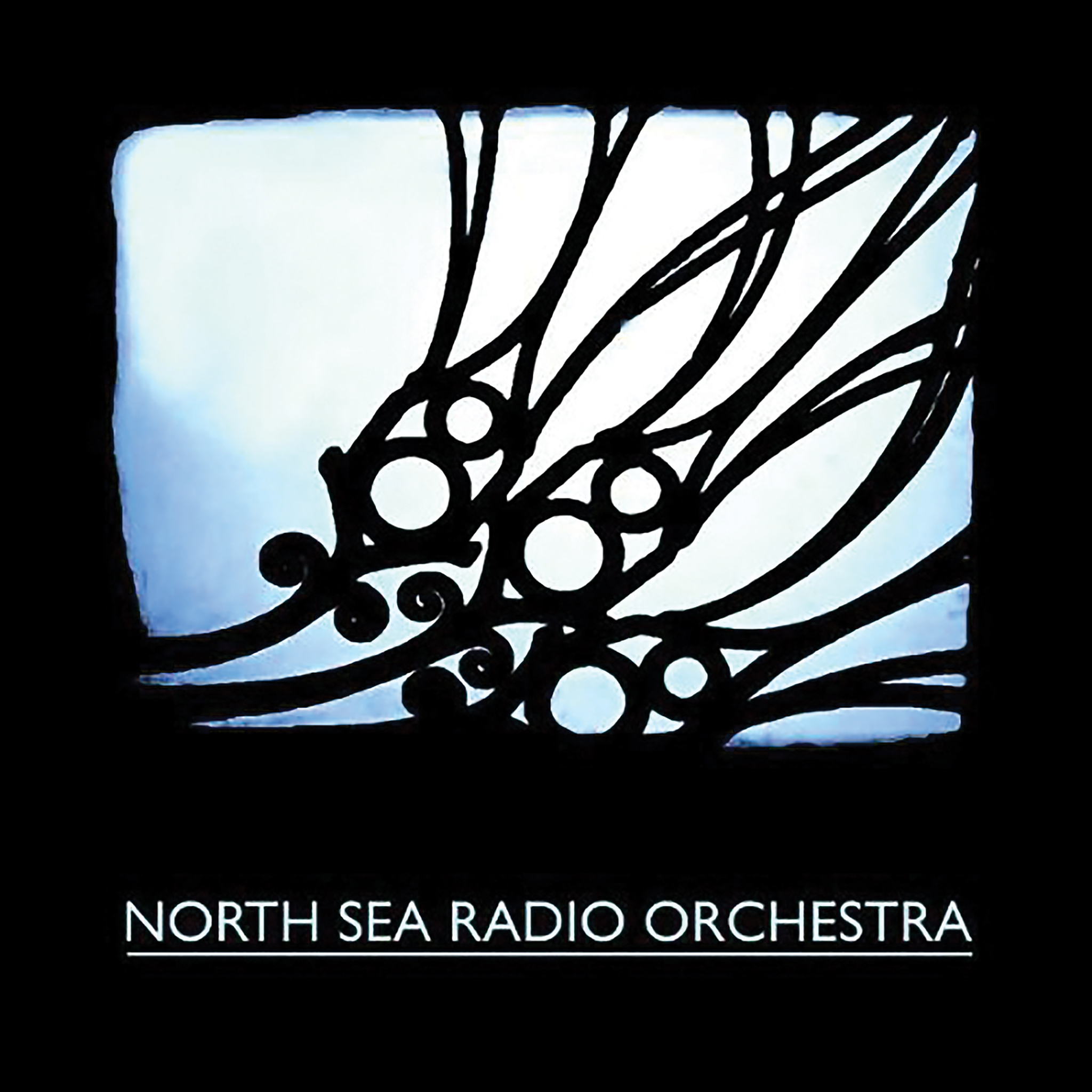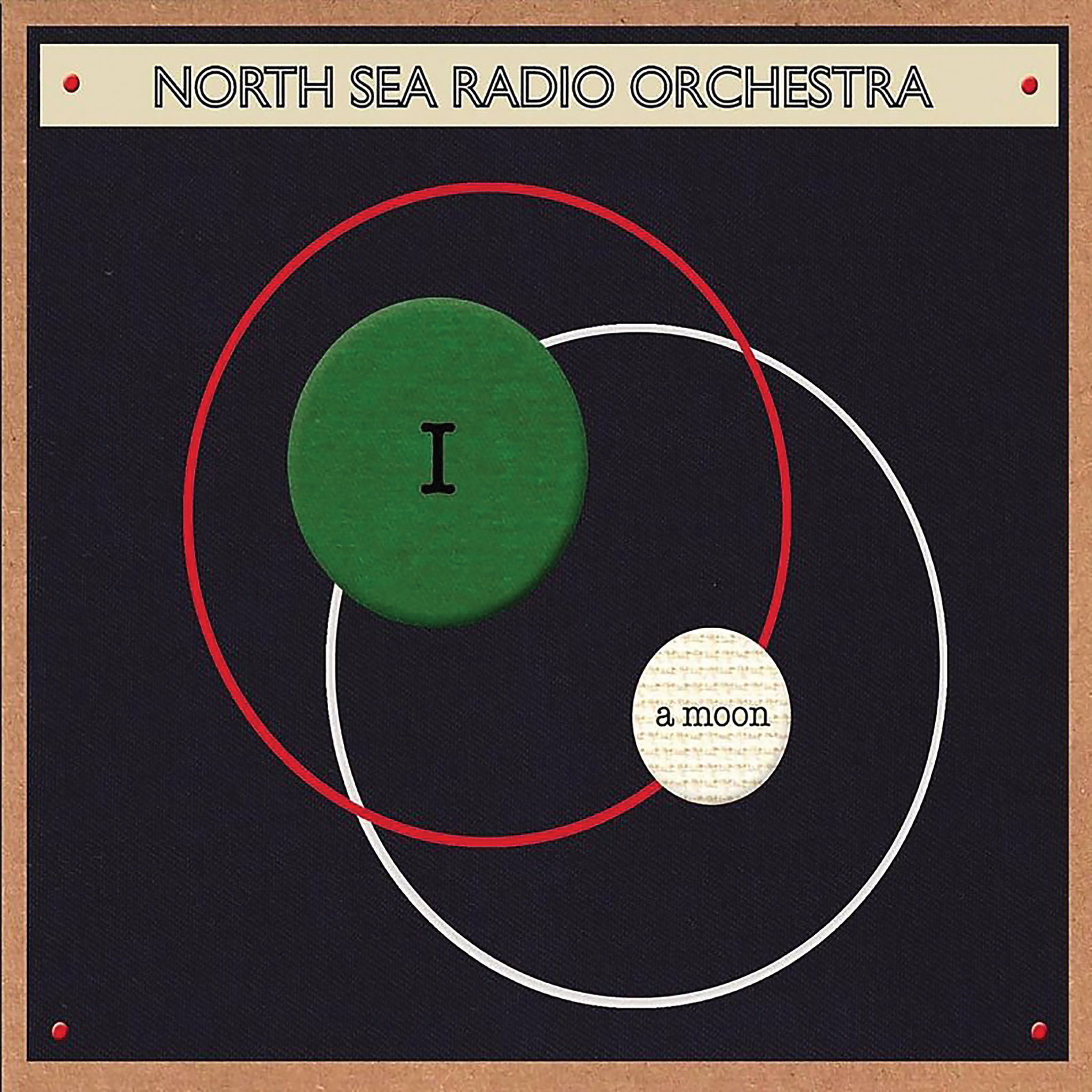They are a London-based collective who have been known to perform in churches and public libraries and boasted, at various points of their 15-plus years’ existence, anything up to 20 instrumentalists, featuring bassoon, oboe, clarinet and organ players who conjure images of court musicians, alongside guitarists, bassists and drummers. They have refashioned the music of Robert Wyatt in tandem with veterans of Henry Cow. They are affiliated, variously, with members of 80s/90s progressive punk cult heroes the Cardiacs and contemporary proggers Knifeworld. They are led by a composer, conductor and musician who admits his first band obsession was Gabriel-era Genesis. Their music – part improvised, part classically notated – is a blend of ye olde worlde and modern, of classical, chamber and baroque, rock of the kraut variety, electronica and folk. It has been compared to everyone from Incredible String Band to Frank Zappa. Prog would venture that they are pretty prog.
“We’ve been called prog folk,” says Craig Fortnam, the leader of the merry band of men and women who operate as North Sea Radio Orchestra. “I like it when they say we’re ‘chamber music’ because that covers a lot of things. What does ‘prog’ mean? We do have rock tendencies. But really, we’ve always ploughed our own furrow, which is great because nobody else is doing what we do. We are unique. The problem is, what are we? People in the [music] industry find it hard to know what to do with us.”
How do record companies respond? Are they baffled into silence?
“Well, the reason we release our own records is that record companies like us but don’t know what to do with us,” he replies. “Likewise concert bookers. Where do we play? Not rock venues.
I mean, we can, but it’s not ideal. We fall between stools.”
Do people confuse NSRO, because of their name/acronym, with those other outer limits proggers British Sea Power and North Atlantic Oscillation (NAO)?
“Maybe,” he allows. “But both of those bands are much more rock. We’re chamber music, which is small ensembles playing in rooms. Rock bands are loud. Mind you, we can be rocky. Our new album [Dronne] has a couple of tunes on it with drums.”
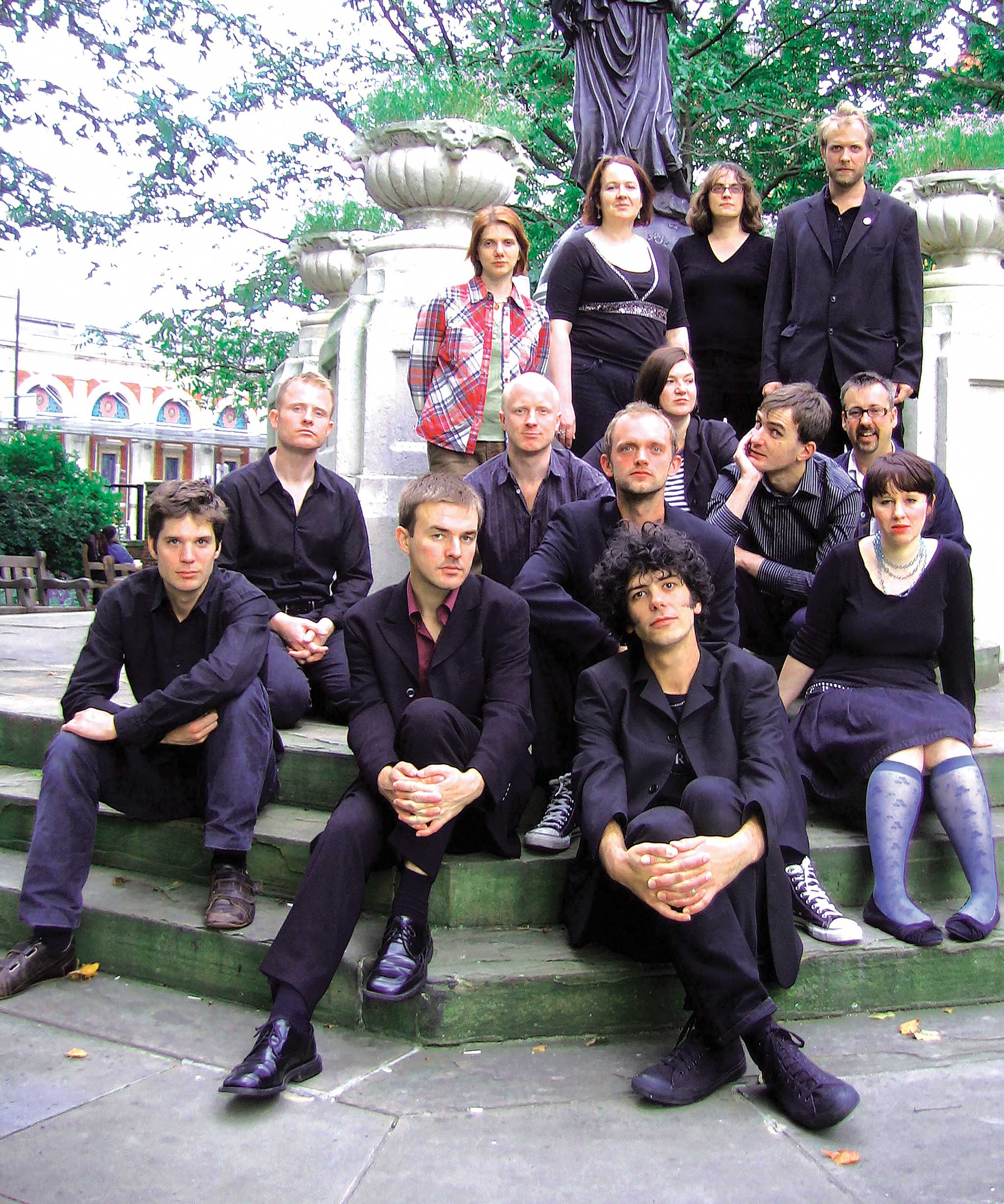
Fortnam, 48, has been in bands for most of his adult life, starting with mid-80s “Hawkwind rip-off band” GNI, through whom he met the Cardiacs. During the late-80s and 90s he was busy on the gig circuit with psych-pop outfits Lake Of Puppies and The Shrubbies. Then he went to Dartington College to study composition. There, he decided, “I wanted to be Stravinsky.”
So he went from wanting to be Lemmy to Stravinsky overnight?
“No,” he corrects. “From Dave Brock to Stravinsky.”
In his heavy gigging years, Fortnam was delighted to be playing in bands but appalled by the number of people who would use the concerts as glorified social events and natter throughout.
“They’d just turn up and chat with their mates – it was pointless.”
So he vowed that his next foray would demand seating and total concentration. Hence NSRO. Hence, also, the accusation from some quarters that they are prim and precious purveyors of bourgeois smugness.
“I’ve never really worried about that,” parries Fortnam, inured to criticism. Besides, the cries of middle-class mimsiness are far outweighed by critics falling over themselves to hail their music’s ethereal beauty and choral splendour. And anyway, as he points out, NSRO’s audience largely comprises rock fans, and their reactions are far from fey.
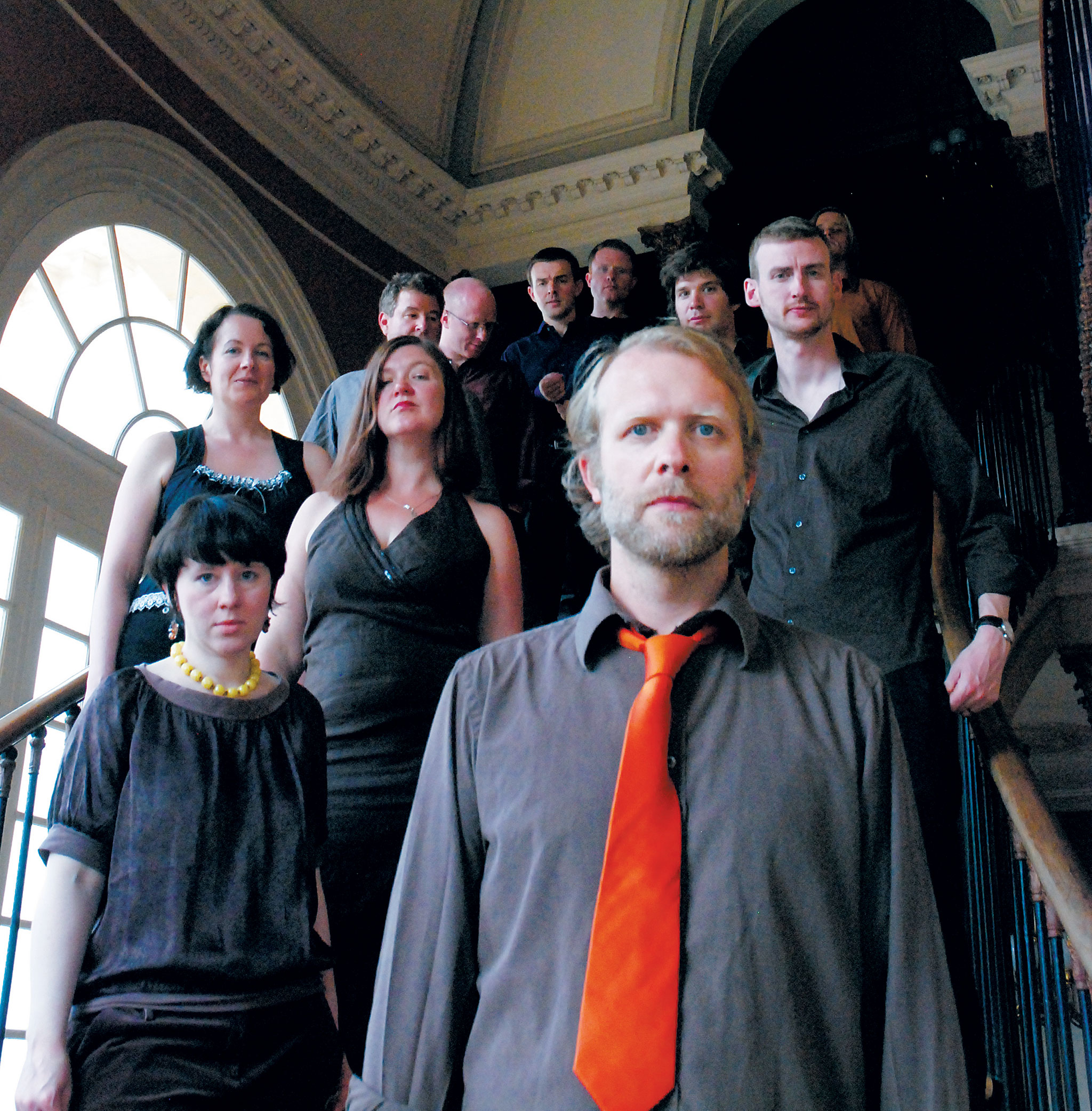
“We have a lot of people cry – grown men and women,” he says, proudly. “Because it’s quite emotional music.
I know we’ve succeeded if somebody cries. We did a gig at Salisbury Arts Centre recently and this guy came up to us and said he cried all the way through. I like that.”
One of those moved is a former world snooker champion turned champion of the musically progressive and strange.
“Steve Davis is really into us,” he beams. “I was playing bass in Knifeworld when I first met him and he shook my hand like this [mimes vigorous motion] when he found out I was from NSRO. I was amazed. You couldn’t make it up.”
Nor could you make up NSRO. A group caught between the Middle Ages and now (“I like certain parallel chord progressions, which are medieval,” agrees Fortnam), committed to fusing classical and rock.
“I’m not interested in doing a straight classical chamber music group,” he asserts. “I’m interested in the boundaries between the two – that’s what floats my boat. That’s why I liked prog as a kid.”
Fortnam’s first love were Genesis. He also liked King Crimson’s angularity but found ELP “too self-aware” while Yes were “too shiny and bright and up in the sky, partly because of Jon Anderson’s singing”. Genesis, on the other hand, were “kind of green and murky, the colour of a murky pond, which I really like.”
Growing up he could see the difference between the Yes/ELP axis – “steeped in post-Beatles English psychedelia with classical overtones” – and Gong, Henry Cow and the Canterbury Scene, who were, Fortnam argues, “a bit older and came from jazz, structurally and harmonically”.
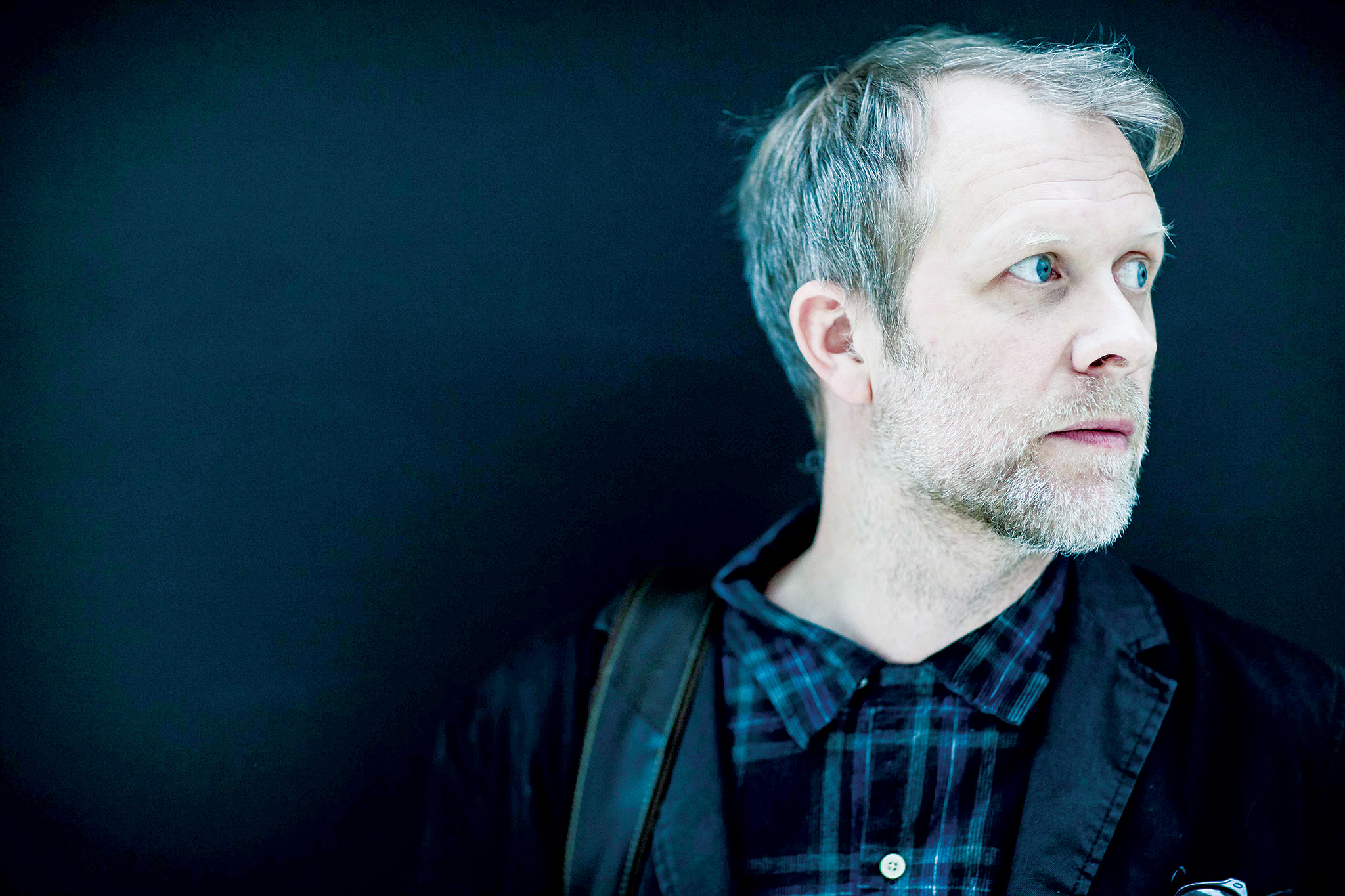
NSRO began circa 2002 when he and his collaborator (and now wife) Sharron Saddington were living on a barge in Bermondsey, Southeast London. Fortnam would regularly head off on his pushbike “to explore all the churches in London, because I’m really into history”.
“I saw all these amazing churches tucked away and thought, ‘They’d be good places to do gigs’,” he recalls. “I found out these amazing spaces only cost 30 quid to hire, so I started to compose music in a classical sense, with classical instruments in mind.”
So he decided, at the height of the neo-garage rock movement of The Strokes et al, and the new blues explosion of White Stripes, to form a classical chamber orchestra?
“Yes,” he laughs, acknowledging the absurd bad timing of it all. “I’ve always been really ahead of the curve, or really behind it.”
NSRO quickly grew from an octet to a 20-person aggregate including a vocal chorus whose church-only concerts accrued a loyal following and in the process created “a funny little scene”.
Did they, with their unusual venues and idiosyncratic line-up, have a provocative intent?
“Not at all,” he says. “I didn’t want to provoke. I just wanted an emotional response.”
To financially support these activities, Fortnam held music workshops in prisons. And then, in 2006, NSRO issued their self-titled debut album. Reviewers praised its “nostalgic, pastoral, quaint… peculiarly English” qualities, its “regal splendour” and “lush orchestrations”. One publication deemed it “The most beautiful album of the year – it could surely sway even the most ardent distortion-pedal freak to step back and open their minds and hearts.”
“Fans of psych, prog, post-rock, post-punk and classical – it potentially had a very broad audience,” he says, although he adds, “Not that I deliberately cast the net wide. Those are just my influences.”
He would recommend that debut, with its Victorian and Edwardian poetry set to music, to fans of ISB, Vaughan Williams, even obscure 70s prog band Gryphon, who were “a big influence on me growing up”.
NSRO followed it up with 2008’s Birds. “That first album sounds like the church gigs we were doing at the time,” explains Fortnam. “It was much more classical than our later stuff, and I was obviously writing for the acoustic environment, with a lot of air and space in the music.
“Birds was more song-based, more pastoral and ‘posh’,” he says of an album of William Blake and Thomas Hardy poems set to music and recorded at Peter Gabriel’s Real World Studios in Bath. It was praised for its fusion of “English medieval, progressive classical, chamber orchestral music and female-voiced acoustic folk”.
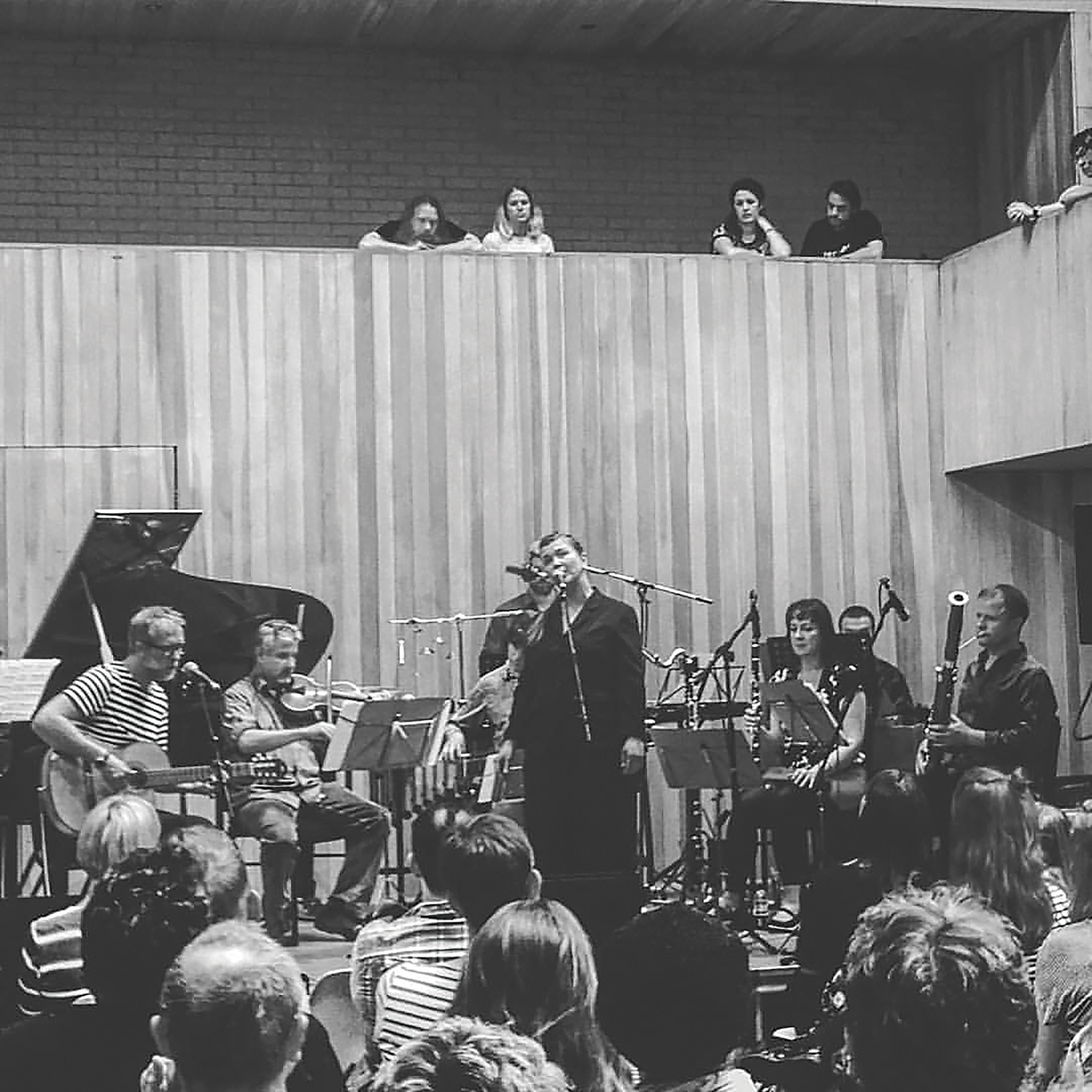
Third record I a Moon (2011) was the first NSRO album produced by Fortnam. It was largely recorded and mixed on his laptop as opposed to the live approach of the previous two albums. It saw him try and shake off the “twee” tag.
“I got a bit tired of reading reviews of [NSRO’s music] ‘tolling through the sunlit glades’ and all that,” he said at the time, admitting: “If you only like The Ramones then we probably do sound fairly twee.”
Less pastoral and darker-hued, I a Moon was written in the wake of the heart attack and series of strokes endured by Cardiacs leader, and good friend, Tim Smith. The change of direction was again critically popular, the BBC proclaiming it “the world’s first baroque-krautrock-folk-rock-Michael Nyman-madrigal-Kate Bush-electro-pop album”.
There was a five-year gap before album four, this year’s Dronne, though in between he did start a family with his wife. He also started a solo project, Arch Garrison, which he describes as “folky, psychedelic and quite proggy, with lots of funny little tunes, instrumental bits and finger-picking guitar”. And NSRO did a show at Green Man where they played old children’s TV show themes including those for The Clangers, Bagpuss and Pogle’s Wood. They got a standing ovation.
“No wonder I write funny music with bassoons in it,” notes Fortnam.
Funny, yet often strangely sad. Dronne was written after Fortnam and NSRO were commissioned, in 2014, to provide the arrangements for a live rendition of Robert Wyatt’s Rock Bottom, which they performed at the Nuits de Fourviere Festival in Lyon, assisted by ex-Cardiacs keyboardist William D Drake and former Henry Cow bassist and singer John Greaves.
“We learned a lot from the experience,” he says of its impact on Dronne. “You can tell [Wyatt] improvises a lot and keeps in a lot of ‘happy accidents’, whereas up ’til that point everything I did was composed. I found a new freedom on Dronne, and that was Robert’s influence.”
Another key influence on Dronne was the death of Fortnam’s brother as he was writing it. “He was schizophrenic so he had a very tough life,” he reveals. “He’d been mentally ill his whole life, and physically, too, he’d been unwell. But we still didn’t expect him to die so suddenly.”
Just as I a Moon was steeped in sorrow and pain, Dronne is suffused with grief and loss.
“Like a lot of schizophrenics, he became a Christian, which became a crutch,” he says of his brother. “But he was a very far-out cosmic Christian, in a William Blake way – mystical. He had all these Jesus tattoos…”
On Dronne Fortnam explores his feelings about his brother’s death in the most opaque way.
“I like it when people go, ‘What’s that song about?’” he says. “They put their own meaning onto it.”
Which is why, although you’d never know, songs such as Dinosaur Rex and Vishnu Schist are about his brother.
The question remains… If Genesis are a murky pond, what are NSRO?
Fortnam pauses for a moment.
“A pebbly beach,” he decides. “A shingly bank on the side of the Thames when the tide’s out.”
What’s the best compliment he’s been paid?
“Somebody came up to us and said we saved her boyfriend’s life,” he says. “He was clinically depressed in hospital and I a Moon pulled him through. I thought, job done.
“Being a composer gives me a sense of my place in the world,” he elaborates. “I never have to worry about why I am here. Because I know what it’s all about: making Art, with a capital A. That is life looking at itself.
“Ultimately,” he says, finally, “it’s about emotional connections, whether it’s chamber music with lovely melodies or The Dead Kennedys. I have a sense of trying to make everything alright with my music, probably to do with own weird upbringing and the fact that I had a mentally ill brother. I’m trying to make things okay.”
Dronne is out now on The Household Mark. See the band’s website for more information.
YOUR SHOUT
You tune in, you turn on, but at the end of the day, the question remains: how prog are North Sea Radio Orchestra?
“I only discovered them recently but I’m pretty impressed by what I’ve heard. And if not prog exactly, certainly prog-friendly.” Chris Parkins
“Not prog as I understand it but the album I have gets played a lot.” Jim Sutton
“Who?” Karl Huatakowski
“Very. Just was listening to their recording of The British Road by Robert Wyatt.” Keith Wilkerson
“Sometimes I wonder if you make bands up to see if anyone comments. I’ve never bloody heard of them!” Jason Richards
“Never heard a note. But the name is none more prog.” Gordon Fleming
“Check them out. They’ve been around a good while (four albums) and are in essence a chamber orchestra/choir with some seriously beautiful melodies and harmonies. More classical/pop/folk crossover than anything prog, to my ears anyway. They do have some very strong Cardiacs connections though.” Darryl Anthony
“I’d say northwest veering north 5 or 6, occasionally 7 at first, moderate or rough, showers, good.” [Very good - Ed] Stephen Boden
“Who?” Charles Snider
“The “Who?” comments never get old, do they?” Rich Goodall
“Bit of a prog element there, more chamber though. Not to my taste, being honest.” Phil Williams
“Who? If they’re a recent group then journalists probably call them the saviours of prog but really they just sound like a shit version of Monster Magnet.” Jack Hayward
“I love them. They’re as much prog as we are…” Marjana Semkina, iamthemorning
“They’re sort of like a proggy take on orchestral music, which makes them pretty proggy as far as I’m concerned.” Pete Orford
“There’s a Cardiacs connection there so that makes them definitely prog in my book.” Sam Mikkelson
“I saw them live once and it was quite the uplifting and emotional experience. And I get that from a lot of prog gigs I go to. So yes…” A. J. Kingman
“More classical music to these ears, so no, not a prog band at all.” Hector Rideout

